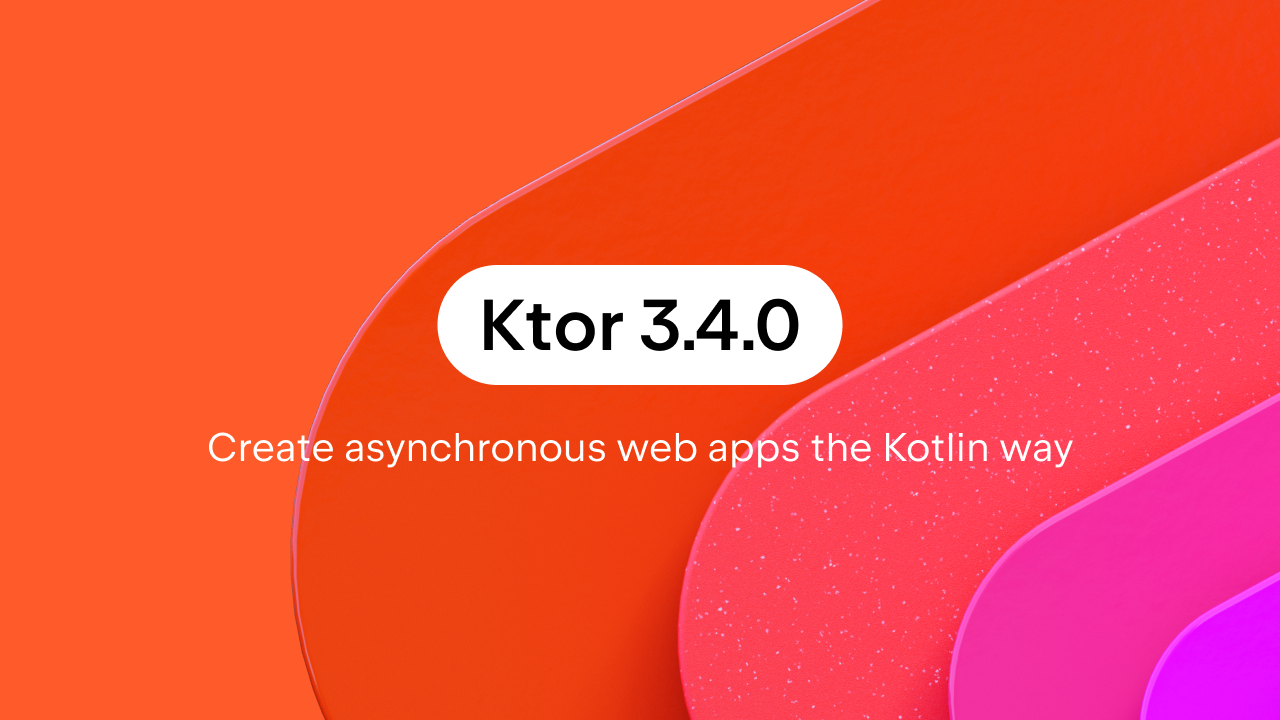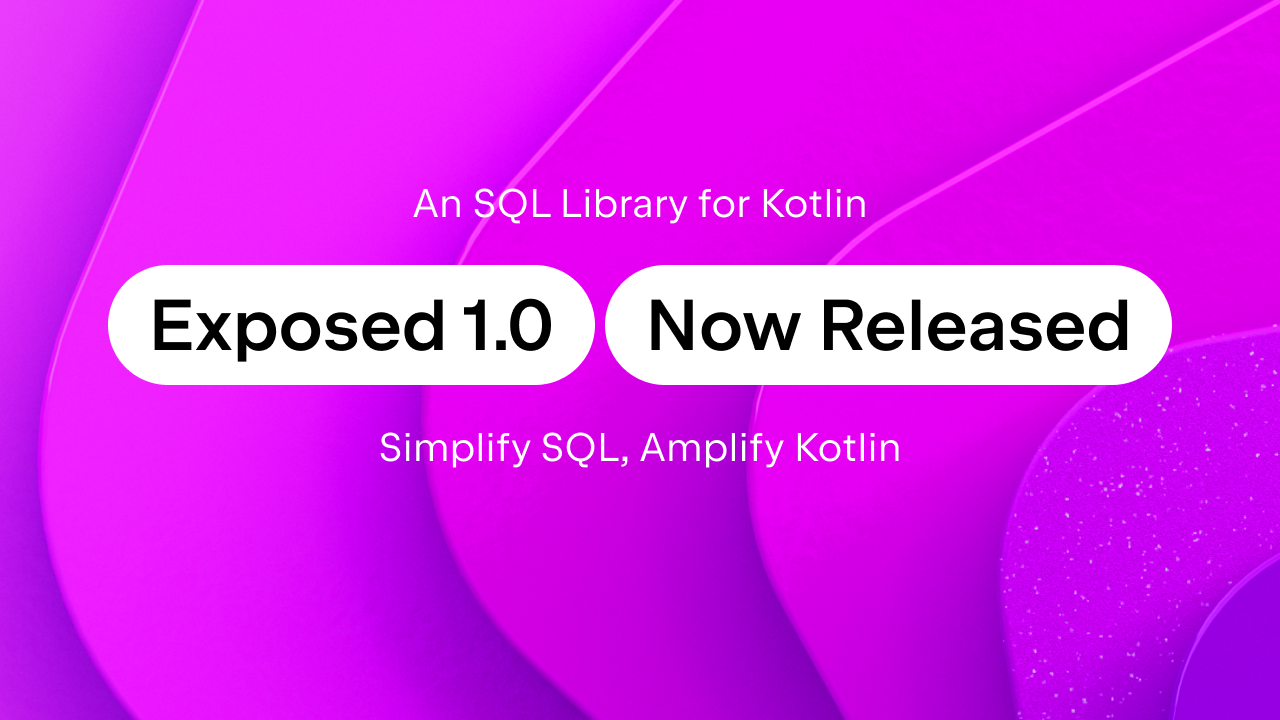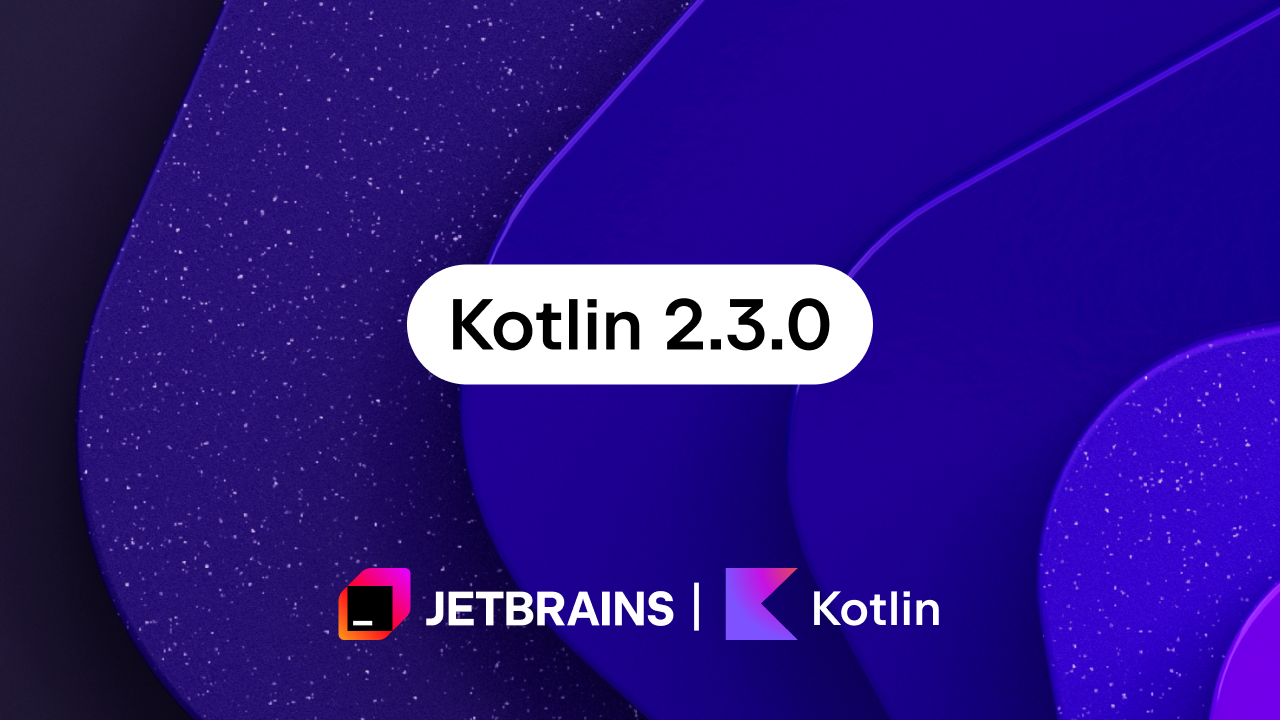Kotlin
A concise multiplatform language developed by JetBrains
Kotlin/Native v0.3 is out
We’re happy to announce the release of Kotlin/Native v0.3. We are going to the new lands! With the release of version v0.3 Windows is supported as both a compilation host and execution target, and Google Android devices as an execution target with native activities. So Windows API ‘Hello World’ may look as easy as:
import win32.*
fun main(args: Array<String>) {
MessageBoxW(null, "Привет!","标题", MB_YESNOCANCEL or MB_ICONQUESTION)
}
Android native activity’s event processing:
if (AInputQueue_getEvent(queue, event.ptr) < 0) {
logError("Failure reading input event")
return
}
if (AInputEvent_getType(event.value) == AINPUT_EVENT_TYPE_MOTION) {
when (AKeyEvent_getAction(event.value) and AMOTION_EVENT_ACTION_MASK) {
AMOTION_EVENT_ACTION_DOWN -> {
animating = false
currentPoint = getEventPoint(event.value, 0)
startTime = getEventTime(event.value)
startPoint = currentPoint
}
AMOTION_EVENT_ACTION_UP -> {
val endPoint = getEventPoint(event.value, 0)
val endTime = getEventTime(event.value)
....
}
AMOTION_EVENT_ACTION_MOVE -> {
val numberOfPointers = AMotionEvent_getPointerCount(event.value).toInt()
for (i in 0 until numberOfPointers)
move(getEventPoint(event.value, i))
}
}
AInputQueue_finishEvent(queue, event.value, 1)
Debugging
With this release we support source level debugging (single-stepping only). For example, try
$ bin/konanc string0.kt -g -o string0
$ lldb ./string0.kexe
(lldb) target create "string0.kexe"
Current executable set to 'string0.kexe' (x86_64).
(lldb) b string0.kt:1
Breakpoint 1: where = string0.kexe`kfun:main(kotlin.Array<kotlin.String>) + 4 at string0.kt:1, address = 0x0000000100001344
(lldb) r
Process 12288 launched: '/Users/jetbrains/kotlin/kotlin-native-release/kotlin-native/string0.kexe' (x86_64)
Process 12288 stopped
* thread #1, queue = 'com.apple.main-thread', stop reason = breakpoint 1.1
frame #0: 0x0000000100001344 string0.kexe`kfun:main(kotlin.Array<kotlin.String>) at string0.kt:1
-> 1 fun main(args: Array<String>) {
2 val str = "hello"
3 println(str.equals("HElLo", true))
4 val strI18n = "Привет"
5 println(strI18n.equals("прИВет", true))
6 println(strI18n.toUpperCase())
7 println(strI18n.toLowerCase())
(lldb) s
Process 12288 stopped
* thread #1, queue = 'com.apple.main-thread', stop reason = step in
frame #0: 0x0000000100001354 string0.kexe`kfun:main(kotlin.Array<kotlin.String>) at string0.kt:3
1 fun main(args: Array<String>) {
2 val str = "hello"
-> 3 println(str.equals("HElLo", true))
4 val strI18n = "Привет"
5 println(strI18n.equals("прИВет", true))
6 println(strI18n.toUpperCase())
7 println(strI18n.toLowerCase())
Libraries
Last, but surely, not the least, we introduced a new library format, called .klib, which is intended to be the default distribution format for Kotlin/Native libraries. Native libraries and frameworks could be easily interoperated with using .klib and used with Kotlin/Native compiler by just specifying -library library command line flag or library Gradle plugin option. Interop tool already produces .klib format files by default. For more details on library format see here.
Getting the bits
Binaries could be downloaded below:
Bugs and issues could be reported using Kotlin bug tracker.
Subscribe to Kotlin Blog updates







